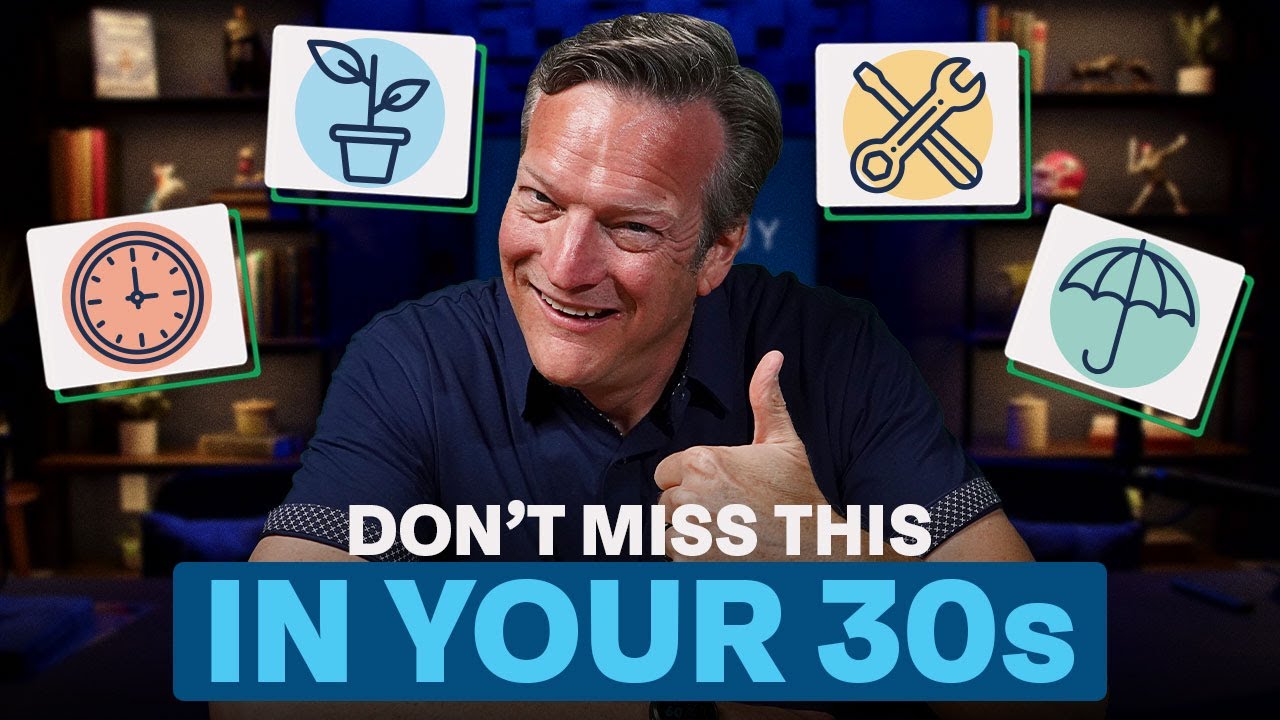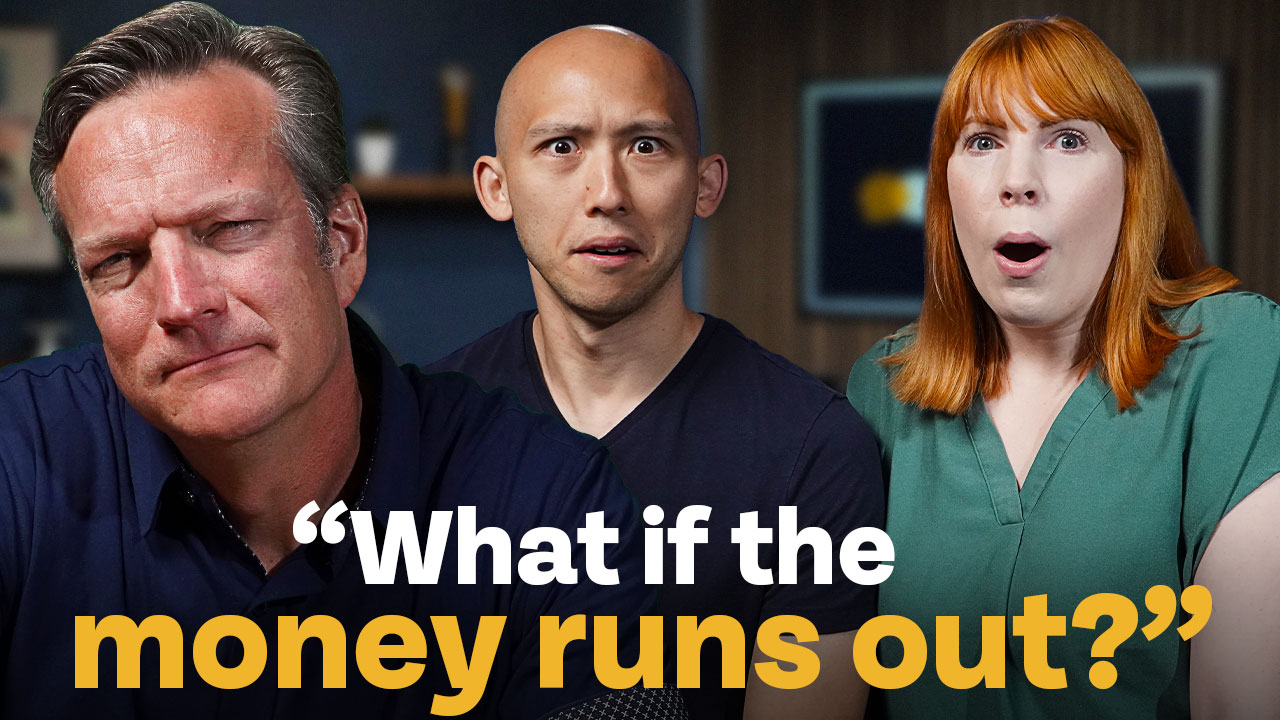That was a great answer. Think long term. And yeah, my first thought when I read this was like, okay, we gotta get a little bit creative, you know? Like, alright, are you gonna knock out the car? Can you spend a little less than 25 percent on housing? Can you save 20 percent for all the daycare? Is 25 percent right? Get creative. And this is coming from someone who's in the messy middle with you. So that was a great answer, guys. Thanks for tackling that and thanks for the question, Money Brick Road.
Alright, Jeff is up next. His question says, 'I'm 45 and my wife is 41. Our entire army of dollar bills is only in two buckets: pre-tax and after-tax. Unfortunately, no Roth. Are we going to be limited as we near a potential early retirement age at 55? What do you think?'
So Jeff, in your specific situation, if all of your assets are pre-tax and after-tax, no, you will not be limited in terms of being able to retire at 55 or before on half. Because that after-tax bucket that you've built up, that's a great bucket that you can pull off of if you end up retiring before 59 and a half. Because you don't have to pay ordinary income tax when you pull that money out. There's no age restrictions. And then if your pre-tax assets are in a 401(k) type structure, you're even good until 55. Because once you stop working in the year that you turn 55, you can actually begin drawing from your 401(k) in that year. You have to wait until 59 and a half. So you do not have limitations in terms of early retirement at 55 or pre-60. Now the question I'd be asking is, is there a reason why maybe I should think about that Roth bucket, that third tax-free bucket that I don't have, if it's not going to limit me from an early retirement? Are there some reasons why I might want to think about getting some money in that bucket? And are there some strategies I can employ to maybe get some money in that bucket?
Yeah, I mean, I think everybody wants tax-free money. I would think so. I mean, there's a reason the government restricts how much you can put in and who can even put it in, because the squeeze of the fruit from tax-free growth accounts is that good over the long term. Because, you know, it's all back to if you go to moneyguy.com/resources. If you pull up the money multiplier, I mean, the exponential growth that you can do, and then if you can do that tax-free, I mean, if you're a financial mutant, that's the stuff that gets you really, really excited.
So what Beau is alluding to is that everyone, I don't care what your income is, a reason it's Step Five of the Financial Order of Operations is that all the tax-free assets, the Roth, the HSAs, go see if you can check the box on it now. I'm getting the feeling, Jeff, based on the way you're structured, you're probably in a high-income situation to where it just never got to the point where you could do it from an income standpoint. But I would say, look, if all your money's in a 401(k) and you don't have IRAs or rollovers, you don't have SEPs or any other type of IRA, so it messes up the basis and the pro-rata rule, you might be able to do what we call a backdoor Roth or a Roth conversion strategy.
Assuming, Jeff, that you've checked that box and you don't have that, something you can do, because maybe there's an IRA sitting out there and you don't have a good 401(k) that you can roll the IRA assets up into. Then I would say, I don't know when you plan on retiring, but you make it sound like it's going to be early. And that's going to mean that the after-tax account is going to be really valuable, because you can play the after-tax and the pre-tax off of each other to try to control your taxes as much as possible. And then even try to employ the opportunity of doing Roth conversion strategies after you were talking, as well as the government's not going to force you to take that money until 75, now 75 for somebody your age. So that gives you a lot of runway to really look at your taxes every year, probably at the end of the year. That's when we do it for a lot of clients, because you just, you don't want to make this plan at the beginning of the year and then find out, oops, somebody had some extra income, you know, big distribution comes your way, then you gotta figure out how you unconvert.
But it is one of those things where I think you'll have plenty of opportunity, Jeff. But this is also a graduation point of the abundance cycle, because this is one of the big things when we talk about what does a financial planner do, is helping you navigate the tax planning in conjunction with the asset allocation and tax location now application of your portfolio. All this stuff works together in a really cool way. This is some of our fun stuff when we're doing the jigsaw puzzle of the investment policy statement. I'm always amazed when we talk to clients or potential clients and they're like, 'Oh yeah, you know, I missed that Roth train. I just, I never did that, I'm never gonna have that.' And we're like, no, no, it's not too late, no matter where you are in your financial journey, unless you're over 75, then it gets a little bit harder, or 73 this year. You can still build Roth fast. It's not uncommon for us to see people in your exact situation, Jeff, that still between the time right now and the time that they get to 55 when they retire can still build up six figures of tax-free assets. And then you can even convert seven figures if you have a long enough time frame. It just, because you did not do Roth earlier, does not mean that the game is over for you. But you've done the good thing at least building two of the three tax buckets. Sounds like you're in a great spot. For more information, check out our
free resources.













